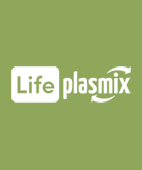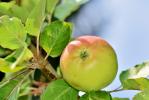
LIFE Project: Recovery of plastic mix and recycling of PP and PS from municipal solid waste
- Type Project
- Status Filled
- Execution 2019 -2024
- Assigned Budget 5.335.254,00 €
- Scope Europeo
- Autonomous community Madrid, Comunidad de
- Main source of financing LIFE
- Project website Web del proyecto
LIFEPLASMIX will contribute to solving one of the EU's priority problems regarding plastic waste generation. Specifically, it addresses the European strategy for plastics in a circular economy, which establishes recovery and recycling rates of 50% of municipal solid waste by 2025, and a maximum of 10% sent to landfill by 2035.
The demonstration will be carried out using innovative technologies at a pre-industrial recycling plant located in Alhendín (Granada, Spain), which will produce 3,769 tons/year of recycled material. LIFE PLASMIX implements the first pre-industrial pilot demonstration of a new, cost-effective recycling solution based on optical separation, washing, and extrusion.
The EU collects more than 27 million tons of post-consumer plastics each year, but only about 31% of this plastic is recycled, with the rest sent to landfill or incinerated. This means that more than 7.4 million tons of plastic waste end up in landfills each year—materials that take more than 1,000 years to degrade.
Mixed plastics, so named because they are made from polypropylene, polystyrene, and expanded polystyrene (PP, PS, and EPS), represent 16% of the total plastics collected from municipal solid waste. Mixed plastics are commonly used for products such as containers, bottles, and trays. Most recycled PP, PS, and EPS come from industry, end-of-life vehicles, agriculture, and electronic equipment. There is no widespread solution for post-consumer plastic waste other than energy recovery. This is primarily because these plastics tend to be contaminated with organic materials that absorb moisture and odors and make recycling difficult.
Demonstrate a set of cost-effective technologies to recover and recycle the plastic mix (PP, PS, and EPS) contained in municipal solid waste.
Achieve a recovery rate of more than 67% of the amount of plastic mix contained in municipal solid waste. These recycled materials will meet food packaging standards, demonstrating that recycled plastics are no longer imperfect substitutes for virgin pellets.
Reduce the amount of plastic waste currently dumped in landfills or incinerated in Alhendín by 5,600 tons/year.
Produce new plastic products containing up to 80% recycled PP, PS, and EPS.
Reduce virgin product production by approximately 3,800 tons/year, oil consumption by almost one million liters/year, water consumption by almost 40,000 m3/year, and CO2 emissions by approximately 7,500 tons/year.
Seven new full-time and six part-time positions will be created during the project, with additional positions available once the pilot plant is operating at full capacity upon completion.
Identify 10 industrial sites where the process can be replicated, leading to at least two replications in the first year after project completion and three additional replications in the following three years.
- Coordinator/entity name: María Teresa Simorte Gancedo
Postal address: Av. Amino de Santiago 40, Building II, 2nd floor, 28050, Madrid
- FCC MEDIO AMBIENTE S.A.
- PELLENCST(PELLENC SELECTIVE TECHNOLOGIES)
- LINDNER(Lindner Washtech GmbH)
- ANAIP(Asociacion Española de Industriales de plásticos)
- UGR(Universidad de Granada)
- ANDALTEC(Fundación ANDALTEC I+D+i)
- STADLER(STADLER SELECCIONA, S.L.U)







